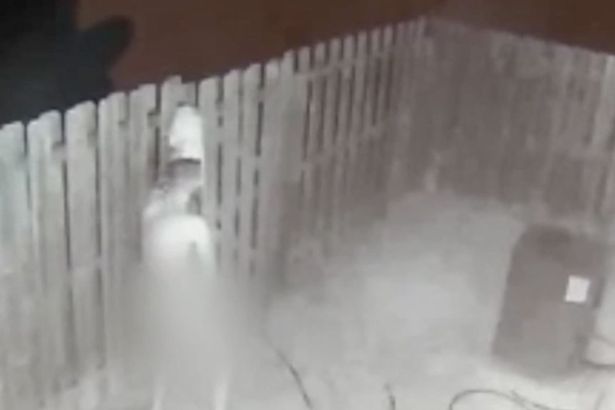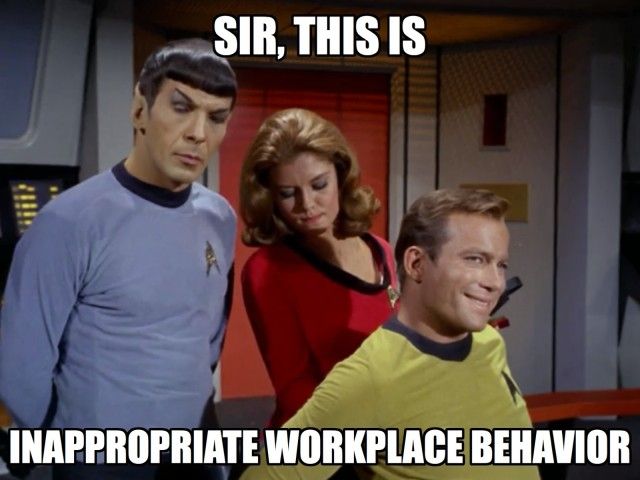https://twitter.com/BKactual/status/913993463472910336
What the hell is going on in Spain?
BARCELONA, Spain — Catalonia’s defiant attempt to stage an independence referendum descended into chaos on Sunday, with hundreds injured in clashes with police in one of the most serious tests of Spain’s democracy since the end of the Franco dictatorship in the 1970s.
National police officers in riot gear deployed in thick phalanxes as they fanned out across Catalonia, the restive northeastern region of Spain, to shut down polling stations and seize ballot boxes.”
https://twitter.com/Timcast/status/914412332708753409
Over the course of the day, the referendum took on an almost surreal cast. The voting went ahead in many towns and cities, with men and women, young and old, singing and chanting as they lined up for hours to cast ballots, even as confrontations with the police turned violent elsewhere.
The police, sent by the central government in Madrid from other parts of Spain, used rubber bullets and truncheons in some places. The clashes quickly spoiled what had been a festive, if expectant, atmosphere among voters, many of whom had camped inside polling stations to ensure that they would remain open.”
https://twitter.com/Timcast/status/914421927028170753
Proponents of the referendum immediately pointed to the heavy use of police force as a blight not only on the conservative government of Prime Minister Mariano Rajoy, but also on Spain’s still relatively young democracy.
“The image of the Spanish state has reached levels of shame that will stay with them forever,” the leader of Catalonia, Carles Puigdemont, told a crowd in the town of Sant Julià de Ramis, the scene of clashes.”
Spanish police fire rubber bullets at voters today in the #CatalanReferendum. #1o #Catalonia #Cataluyna pic.twitter.com/O8o4b0UlCG
— WikiLeaks (@wikileaks) October 1, 2017
The Catalan vote has been watched with rising trepidation — and no sign of support — by a European Union wary of stoking forces of fragmentation already tugging at the bloc and many member states, where populist and nationalist parties have surged in recent elections.
Nationalism in Spain, a country with a long and painful 20th century history that included civil war and fascism, has been all but dormant since the coming of democracy after the death of the dictator Gen. Francisco Franco in 1975. There are already signs that Catalonia’s threat to fracture the country is changing that.”
An LAUSD statement said the inappropriate sexual conduct may have involved at least 13 school districts.https://t.co/JX1z4fkIaQ
— NBC Los Angeles (@NBCLA) September 30, 2017
Canadian police said early Sunday that an attack on an officer outside a football game with a car and knife and a high-speed chase of a U-Haul that left four people injured in the western city of Edmonton, Alberta, are being investigated as acts of terrorism.
Edmonton Police Chief Rod Knecht said that officers took a suspect in custody and they think he acted alone. Knecht said an Islamic State group flag was found in the car that hit the officer. They later described him as a 30-year-old Edmonton man.
The attack began outside a Canadian Football League game outside Commonwealth Stadium on Saturday night when police say a white Chevrolet Malibu rammed a traffic control barricade and sent an officer flying into the air 15 feet.
Knecht said the driver, believed to be 30 years old, then got out and attacked the officer with a knife before fleeing on foot.
The officer was taken to a hospital and treated for non-life threatening injuries while a manhunt was launched. “It’s not critical,” Knecht said of the injuries.
A few hours later, a U-Haul van was stopped at an impaired driving check stop north of downtown on Wayne Gretzky Drive. Knecht said the name of the driver was close to the name of the registered owner of the car that hit the officer.”
PARIS — Two women were killed in southern France on Sunday by an assailant armed with a knife, in an attack that forced the evacuation of a major train station, the authorities said.
The assailant was fatally shot by a military patrol after killing the women in front of the Saint-Charles train station in the Mediterranean port city of Marseille. The attack interrupted train service and unnerved the country as it debated the government’s new security bill.
The Paris prosecutor’s office, which handles terrorism cases nationwide, said on Sunday that it had opened a terrorism investigation, but the authorities said the assailant’s motives were not entirely clear.
“This act could be of a terrorist nature, but at this hour we cannot affirm it,” said Gérard Collomb, the French Interior minister, who is in charge of domestic security.
Jean-Claude Gaudin, the mayor of Marseille, told reporters that the attacker had seemed to have “several identities.”Asked about reports that the attacker yelled “Allahu akbar,” or “God is greatest” in Arabic, at the moment of the attack, Mr. Collomb said that “a certain number” of witnesses had said they heard him do so, but he added that they were still being interviewed by the police for further details.
“We have video images that will enable us to assess the situation,” Mr. Collomb said, referring to security camera footage in the station. “What is strange on the video is that the person starts to commit his crime on a first person, then he runs away, and then he turns back to kill the second person.”
A military patrol that had rushed to the scene after hearing cries of panic and seeing people running fired warning shots at the attacker, Mr. Collomb said, and then shot and killed him when he rushed at them.”
https://twitter.com/Breaking911/status/914535792881602563
Sacramento police released 15 videos Wednesday from a fatal September standoff with a suspect wanted for killing a mother and daughter in Meadowview, including footage showing him open fire on officers before being struck and dropping to the ground, as well as video of an officer falling backward after getting shot.
Eric Arnold, 41, of Sacramento was killed Sept. 7 after he struck two officers on 27th Avenue in south Sacramento.
“I’m hit, I’m hit, I’m hit,” an officer says on one of the videos.
One officer was shot in his bullet-proof vest, while the other one was hit in the leg. Both were treated and released with non-life-threatening injuries.”
Cholera. In a US territory. Among US citizens. In the 21st century. Heckuva job, Trumpie.
— Paul Krugman (@paulkrugman) September 30, 2017
OK, cholera not confirmed. Conjunctivitis yes; lack of clean water (situation worsening, not improving) makes it a risk. But not certain
— Paul Krugman (@paulkrugman) September 30, 2017
Everyone wants to be a victim so bad cause it’s cool now:
Police said Friday that they found “no evidence” that officers used excessive force in detaining Seattle Seahawks defensive end Michael Bennett during an August incident in Las Vegas and that they had reasonable suspicion to make the stop.
Bennett has accused police officers of racial profiling, saying they pointed guns at him and used excessive force in the incident, which occurred outside a nightclub after the Aug. 26 fight between Floyd Mayweather Jr. and Conor McGregor.
The body camera of the officer who initially detained Bennett was not turned on. Clark County Sheriff Joe Lombardo said Friday that police sorted through 861 videos, including from body cameras from other officers and hotel security cameras, and found that 193 were pertinent to the investigation. From there, they said they pieced together a timeline of the incident and played video for the media at a news conference. They said Bennett’s detainment lasted about 10 minutes, seven of which were spent in a police car.
The video shown by police showed an officer with his weapon drawn over Bennett on the sidewalk. Police said Bennett was handcuffed, moved to a police vehicle and spoken to by another officer, who told Bennett that police were looking for an active shooter. After an exchange with police that lasted a few minutes, police took the handcuffs off Bennett and he was told he could leave. Bennett shook one of the officers’ hands and walked away.
Lombardo said the internal investigation showed that the officers behaved “appropriately and professionally” and that “the incident was not about race.” He said two other individuals were also detained in a similar manner, one black and one Hispanic.”The Officers’ excessive use of force was unbearable,” Bennett wrote. “I felt helpless as I lay there on the ground handcuffed facing the real-life threat of being killed. All I could think of was ‘I’m going to die for no other reason than I am black and my skin color is somehow a threat.'”
Remember the new civility rules for the next president:
If you told me 5 yrs ago that SNL would be calling the President of the United States a "bitch" and a "cracker" I wouldn't have believed you pic.twitter.com/2zTYnixSf7
— Yashar Ali 🐘 (@yashar) October 1, 2017
The robot trucks are coming to kill us all:
A year ago, the military started testing vehicles that could communicate with each other and the infrastructure along Interstate 69 in St. Clair County.
“It went well,” said Doug Halleaux, public affairs officer for the U.S. Army Tank Automotive Research, Development and Engineering Center in Warren. “They got a lot of great data from the radios: How far apart they can be to talk to the vehicles; how far away from the roadside to be able to talk to the infrastructure.”
The Army is taking the next step in testing vehicles that will put a convoy under the control of a single driver.
They’ll be rolling across the Blue Water Bridge into Canada starting Monday.
“If we can show this technology works in an environment as complicated as the bridge — going through Customs, traveling over a steel truss bridge — it will be that extra level of confidence that the technology is going to work,” Halleaux said, noting engineers are confident the vehicles will be able to handle the tests.
It will be also the first time a convoy under the control of a single driver kill be heading into another country from the United States.”
Here’s the complete video of that whack job at UC Riverside that I played on podcast:
WASHINGTON — Urgent new orders went out earlier this month for United States Navy warships that have been plagued by deadly mishaps this year.
More sleep and no more 100-hour workweeks for sailors. Ships steaming in crowded waters like those near Singapore and Tokyo will now broadcast their positions as do other vessels. And ships whose crews lack basic seamanship certification will probably stay in port until the problems are fixed.
All seemingly obvious standards, military officials say, except that the Navy only now is rushing the remedies into effect after two collisions in two months left 17 sailors dead, despite repeated warnings about the looming problems from congressional watchdogs and the Navy’s own experts dating to 2010.
“Many of the issues we’re discussing today have been known to Navy leaders for years. How do we explain that, Admiral?” Senator John McCain of Arizona, the Republican chairman of the Armed Services Committee, demanded of Adm. John Richardson, the chief of naval operations, at a hearing last week.
“Senator, there is no explanation,” Admiral Richardson said.”
https://twitter.com/zimm3rmann/status/914343721864433665
Here’s something nice for once:
CHEYENNE – It was a long time coming for two U.S. Air Force veterans. But when it finally happened, the moment was worth the wait of a lifetime.
Cheyenne resident Ray Cahoon and Roy Salmon of Melbourne, Florida, met while stationed at Tachikawa Airfield in western Tokyo in 1957. Two years later, however, they lost touch after Cahoon was transferred while Salmon was at a track meet in the United States.
For decades, the two men didn’t speak, but they never forgot one another.
A short time after he sent his letter to the newspaper, Salmon received a letter from Cahoon, 84, confirming he was alive and well. Since then, the two have been exchanging letters and phone calls catching up after decades apart.
On Friday, the two shared a moment transcending letter and phone correspondence when they met at the Wyoming-Colorado border on Interstate 25.
Amid the roaring traffic, tears, laughter and excited chatter surrounded the two long-lost friends’ first embrace since losing touch nearly 60 years ago.”
A contractor buddy of mine already has a Kim Jong-Un “Rocket Man” shirt and I’m jealous AF:
I told Rex Tillerson, our wonderful Secretary of State, that he is wasting his time trying to negotiate with Little Rocket Man…
— Donald J. Trump (@realDonaldTrump) October 1, 2017
Dude went all in on the fakery:
Paul Bennett Knox comes to us from Sulphur, LA, in 2014, Don Shipley contacted our partners at This Ain’t Hell to advise them of Paul obtaining award from the town of Sulphur for his military service.
…“Vietnam War veteran and Purple Heart recipient Paul Knox was recognized for his military service by the Sulphur Armed Forces Commission at the Feb. 10 City Council meeting.”

Knox served from 1969 to 1975 in the U.S. Navy as a Navy Seal, leaving with the rank of Senior Chief Petty Officer. During his military tour of duty, Knox was a Special Operations Seal for Team 4. His service awards and medals include two Purple Hearts, the Navy Cross and the Vietnam Service Ribbon. Knox, a retiree, is currently an active member of the American Legion.
A resident of the area for over 13 years, Knox and his wife, Michelle, are the parents of three children.
Knox received a certificate and city medal from Commission members.”….
Holy crap, Paul Bennett Knox joined the Navy in October 24, 1974 until November 22, 1974, that is 29 days in the Navy. Seriously 29 days, we are pretty sure you can’t become a Navy SEAL, receive a Silver Star, 2 Purple Hearts and serve in Vietnam in 29 days.”
John Kasich hints that he may need to leave the GOP https://t.co/rCHEhYhFAy pic.twitter.com/4qCxJweWq5
— HuffPost (@HuffPost) October 1, 2017
This disappeared from the news at the speed of light:
NASHVILLE — A note found in the SUV of a man charged in Sunday’s church shooting referenced retaliation for a white supremacist’s massacre at a black church two years ago in Charleston, S.C., law-enforcement officials told the Associated Press.
Police believe Emanuel Kidega Samson, 25, of Smyrna, Tenn., shot and killed one woman while injuring seven others in an attack at Burnette Chapel Church of Christ in the southeast Nashville neighborhood of Antioch. While police have not released a motive for the attack, the note could offer a glimpse into his mindset.
AP reporters did not view the note, but it was summarized in an investigative report circulating among law enforcement.
“In sum and in no way verbatim,” the note referenced revenge or retaliation for Dylann Roof, the white supremacist who killed nine black worshipers at a South Carolina church in 2015 and has since been sentenced to death. The report did not cite what precisely Samson is alleged to have written about the Roof shooting or whether his note contained other important details that might also speak to the motivation or state of mind behind the recent crime.”
Shame on you Antonio Jones Davis ,LB for @NIU_Football who intentionally poked @Aztec_Football #RashaadPenny in the eyes. Should be ejected! pic.twitter.com/PEpH4T2UzH
— Lya Vallat (@Ballgirl8) October 1, 2017
Naked Dude caught on security camera JACKING IT:
NASHVILLE, Tenn. (WZTV) — UPDATE: (9/30/17) — Police arrest 33-year-old Kevin Montgomery of Hermitage on Friday night for indecent exposure after an incident at a Hermitage woman’s home. They say he has prior convictions for the offense.
After first entering her yard wearing a shirt and no pants, the man stayed in her backyard for around 36 minutes.
The video shows him eventually full nude appearing to pleasure himself and use her garden hose. He is also seen looking into her windows and trying to open the back door multiple times before jumping over the gate and leaving.”

One of the residents over here on this side said she recognized him after the fact” Kim Shivers said. “When she saw the video she said that’s the guy. But he came around the back and used her water hose to clean.”
A neighbor found his wallet nearby his social security card, say police.
Montgomery is also charged with criminal trespassing and vandalism. He has been released from jail on $3,750 bond.”











COMMENTS